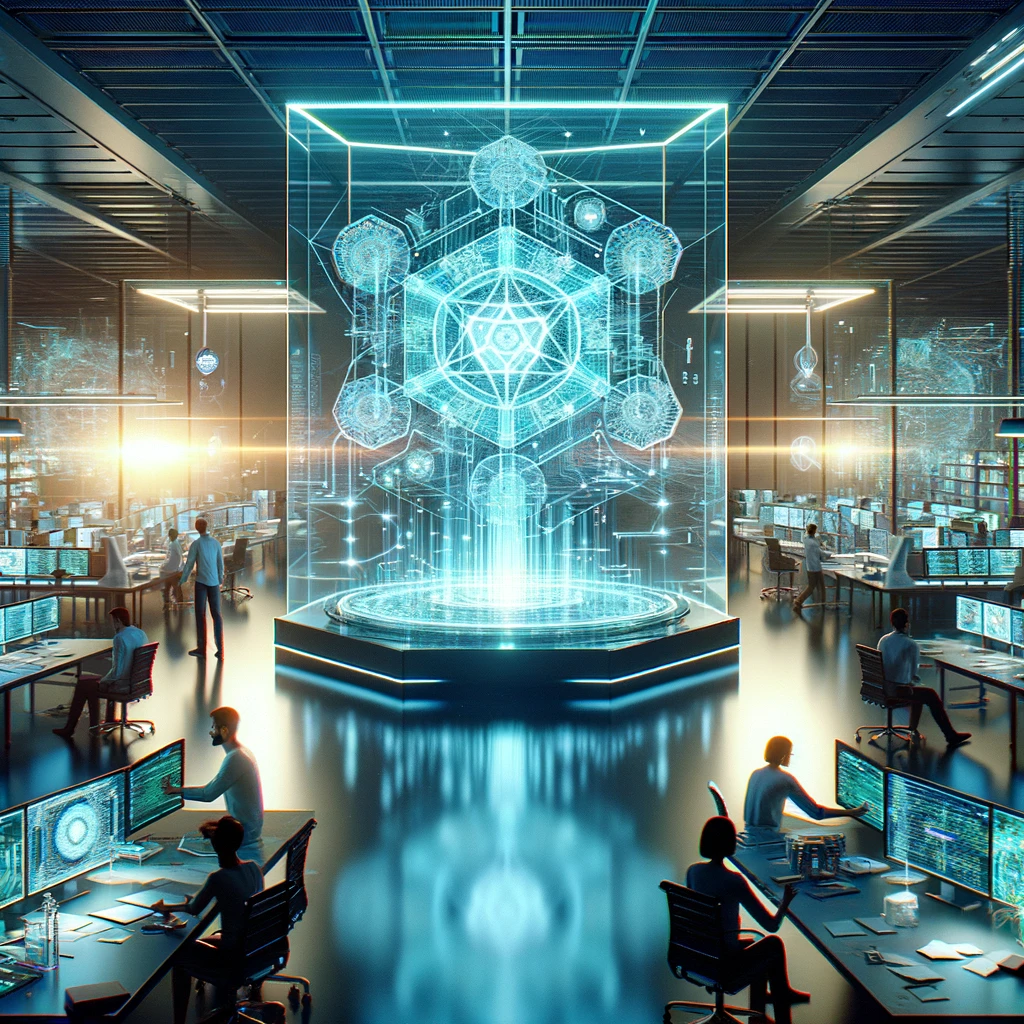The gaming industry is constantly going through rapid changes— bubbles will burst only to be replaced by new ones. The growing democratization of game development lead to flooding of the market and big players are usually keeping their leading position by massive marketing and practices that would be considered underhand at least, i.e. focusing on various intrusive monetization practices instead on player satisfaction and creating long-lasting emotional connections that will lead to high CLV — but not high enough. It is estimated that the global gaming market can “digest” about 5000 games a year, while the mobile app stores alone are publishing that many games every single day.

Monetization is the order of the day and many games are developed only with ‘how to extract as much money as possible from players’ in mind. With the base of users growing and players becoming more sophisticated, providing fun and solid monetization plan has lead to micro-transactions and many games being powered by sort of vanity marketing. Selling “shiny” and “cool” cosmetics to players has increasingly become the mainstay of monetization. Think… Fortnite or Counter-Strike. Virtual guns with a unique look (called “skin”), some of which are casually priced at $300–800 range with some really rare pieces fetching as high as $61000.
Dragging a jet fighter across a battlefield
This image sums up how blockchain is used in the gaming industry right now. Basically, the blockchain games are used to lure players to spend cryptocurrency. In somewhat veiled form, players are basically exchanging ERC-20 for ERC-712 (or in rare cases, newer ERC-1155).
This practice is best showcased with one of the earliest and most popular blockchain games — CryptoKitties. Using Ethereum’s network, players pay in standard cryptocurrency (running on ERC-20 standard) to purchase a kitty which is, in fact, a non-fungible token (NFT) a.k.a unique item. A player can collect kittens and sell them, when and if the value grows. The player can breed kitties too, for a small fee. Now, a distinct 256-bit genome (cattribute) is embedded in ERC-712 token. This means that some of the very desirable traits could be passed off to “offspring” creating unique and more valuable kitten for the collector’s market.
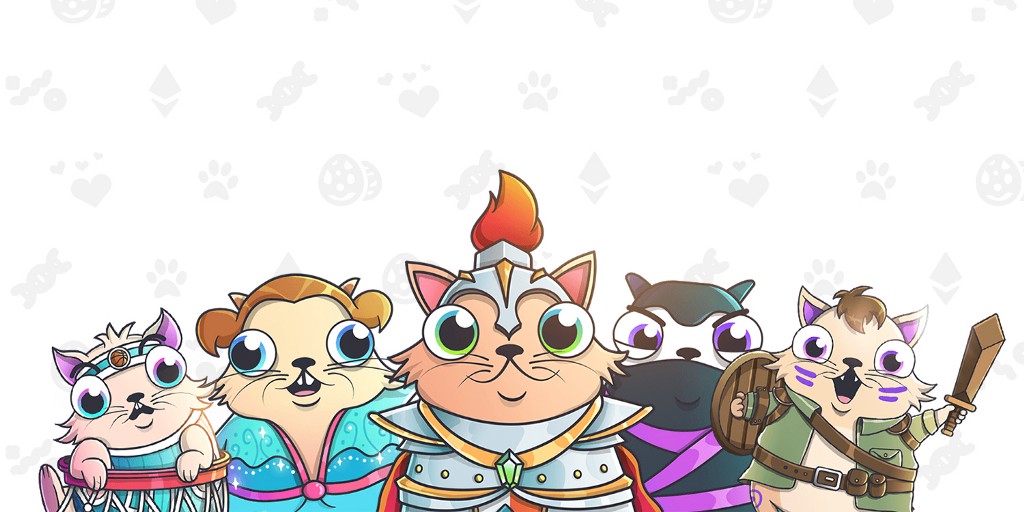
Let’s take a peek under the hood. The goal was to gamify the unique features of the blockchain, make an app that is fun and easy to use, without an ICO. If you have Ethereum in your wallet, you only need MetaMask, which interfaces with the CryptoKitties website, making the project still quite centralized. Your first kitty comes from the market, which is run as a descending clock auction, set in such way that you don’t use gas when you lose a bid.
On-chain you can buy, sell and offer your kitty for siring. Off-chain, you can view your kitty (turning the genome into a picture) and breed them (e.g. mix the genomes of each parent to create a new kitty genome).
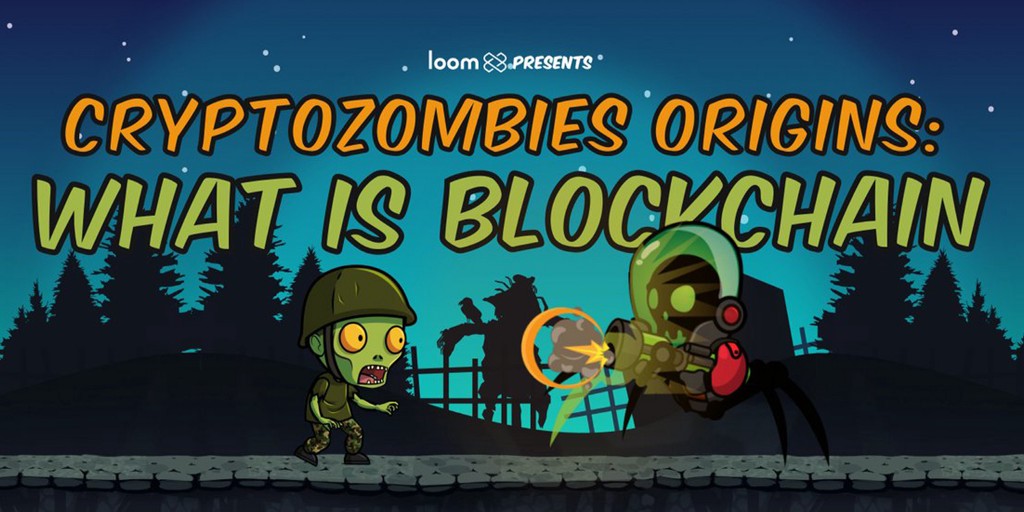
And that’s pretty much it. Most of the games that brag about being built on blockchain are variants of CryptoKitties (such as CryptoZombies), and some collectible items are being sold for cryptocurrency. There are several gaming oriented currencies floating around — however, they are just like every other cryptocurrency with their use limited to games and in-game purchases. Then there are e-sports betting coins, allowing spectators to bet on the match outcomes and that’s pretty much the extent of blockchain use in the gaming industry today.
The roadblock
There are two major obstacles blockchain gaming faces. The primary one is, obviously, scalability. There is a sore lack of blockchain games. Centralized game platforms currently run a number of advantages over new solutions. Slow network speed leads to many games being simple iterations of popular titles or collectible-focused games. The other obstacle is a lack of developers activity. Blockchain currently, within its limits, already provides for fantastic possibilities in terms of game design and game mechanics. Let’s explore some of the cases for use of blockchain in gaming beyond the current landscape.
Best of both worlds
Hybrid solutions could bring new interesting models. For example, Gods Unchained is a collectible cards game running on a centralized server, just like all the current-gen games. However, the trading cards that players obtain are non-fungible ERC-721 assets on the blockchain and owners can trade them in decentralized markets.
Security, frauds and booming in-game trading
Currently, trading in-game items is a blossoming market with an estimated worth of $50 billion. Yup. Billions. Heck, one of the highest fetching items was a virtual planet sold for $6 million! Considering that number of players is 2.5 billion and growing, plus the fact that over 60% of players engage in purchasing virtual items with an average spend close to $150, you can see how lucrative this field is.
That is why in-game trading attracts frauds. Credit card scams, as well as black market trading with illegitimate copies of virtual items on top, create huge losses for the developers and publishers. In China, there are 273 fraudulent items downloaded for every legitimate item. In the USA this practice is down to 1 fake item for each legit one. It is estimated that, globally, for very legitimate download 7.5 items are lost to fraud. Depending on where in the world you play, 50–90% of virtual goods purchases could be illegitimate.
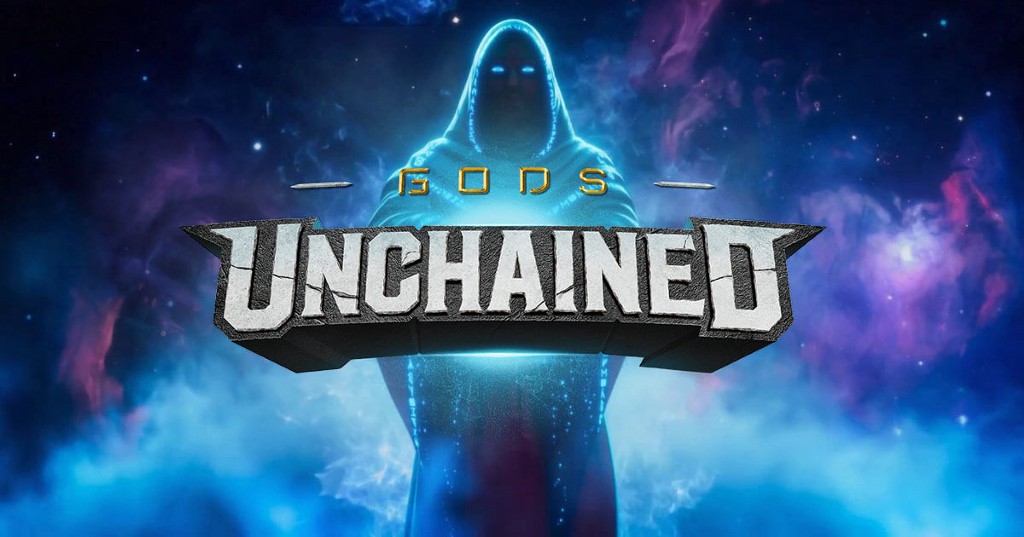
Blockchain offers a safe and clean way for trading virtual goods tethered to smart contracts. It can easily make the in-game trading safer and more lucrative. No fraud losses, no third party costly payment solutions, and better management of in-game goods. One of the wonderful side effects would be a boost in user experience. Fraudulent in-app purchases provide an unfair advantage to cheaters, ruining the game for others.
Gaming economies
The ecosystem built around a game can become very rich and varied. There are games which allow content to be added, leading to a culture of “modders”. In Second Life, an online virtual world, users can create new objects in the proprietary coding language Second Life runs on (LSL). A niche market has developed where users pay others to design their virtual houses, manage their virtual properties or create unique items. Importing of data is done through a client, leading to fraudulent use of third-party clients.
Developers and modders have always had a love/hate relationship. Modders can enrich a game, bring amazing new content and make the experience better for everyone. However, they can also “hijack” developer’s efforts, essentially creating a new game or new stream of revenue that is parasitic on top of dev’s original work.
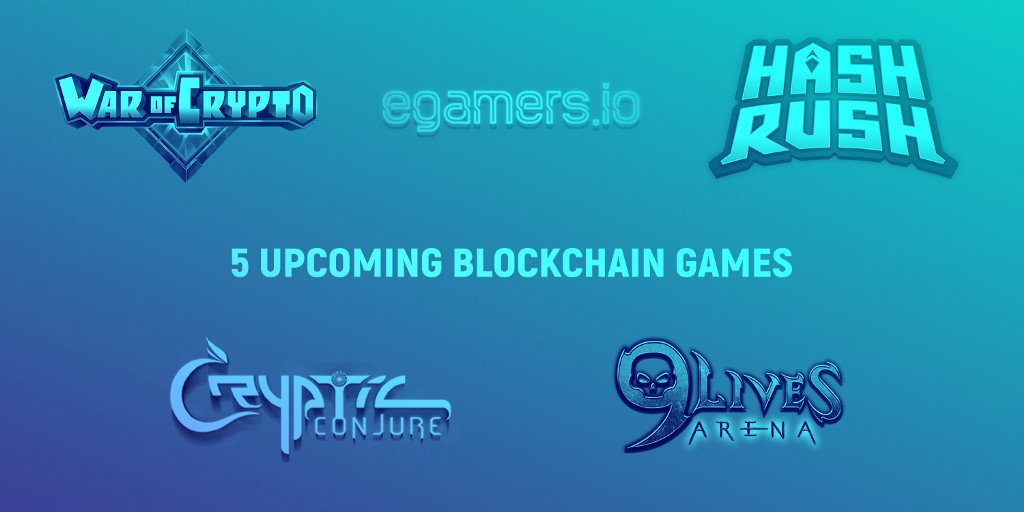
Even in player-based game economies such as the MMO “EVE Online” players are not creating unique items. Yes, players mine resources and craft items. Yes, the economy is robust enough to provide income, essentially allowing the players to finance their subscription with in-game currency. But it’s still far from crafting unique items. Not to mention scamming schemers that always try to siphon in-game currency out of the game and exchange it for hard cash.
With blockchain, there would be no need for hard regulations. Devs would be able to collect royalties, providing modders with fair income as well. Assets created would be unique and their scarcity would boost the game economy to the next level. Safer virtual items exchange, fewer frauds and proof of asset scarcity would lead to safer transactions and more varied transactions, bringing better content into the game while increasing the value of gaming items.
Are you ready to get your mind blown?
With ERC-721 or ERC-1155 standards connected to unique in-game items, it’s very easy to imagine tokens moving from one game to another. Say you play a fantasy game, swinging sword and slaying monsters. Sword is a crypto token which transferred to another game turns into an object appropriate for the game you play. Suddenly your magic sword is now a super special sniper rifle. Or a unique space fighter. Or super rare card in a collectible trading game.
Not only would that be awesome, but it would add to the value of each individual item. Gaming companies could join to create parallel gaming universes, sharing their user base for the benefit of everyone. Blockchain proof of uniqueness combined with smart contracts would make sure that game-hopping items are safe to use, providing better loyalty across the linked games.
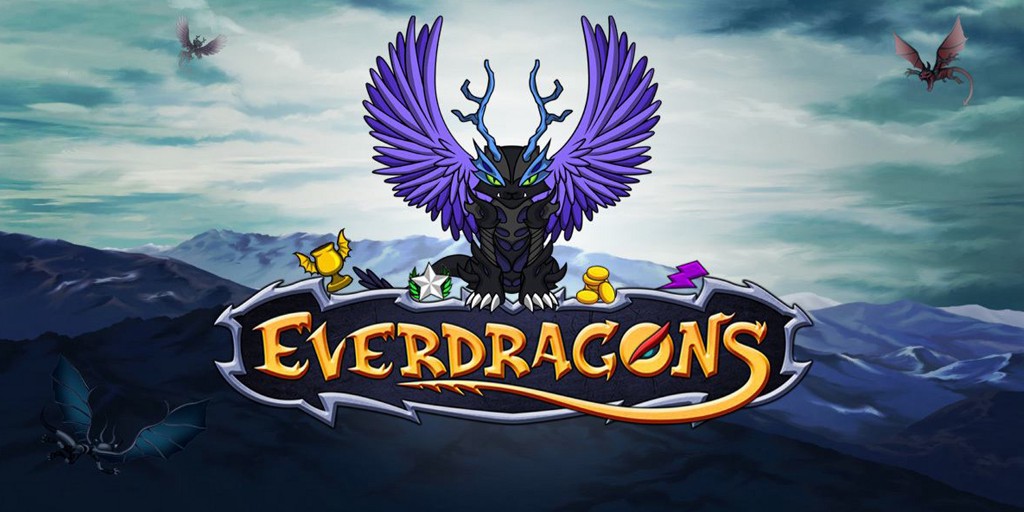
Another way to boost the game mechanic would be event based progression. History of blockchain tethered virtual items would keep track of how the object is used. Imagine a Desert Eagle wielded by an expert gamer. A streak of headshots, for example, would trigger an event that embeds into the item creating unique Headshot Eagle, maybe even with improved game stats. Such item gains value simply by having a player use it in an amazing way.
Let’s say this item is traded away. Next user could, maybe, use this gun to liberate hostages or win streak of rounds. Our Headshot Eagle transforms into, let’s say, Headshot Eagle of Winning, adding more bonuses, increasing the value. With item’s history of use being stored in the blockchain, unlocking new bonuses could also create benefits for the original user. Whenever item levels up or unlocks event that boosts its property, the original user could get a reward, more tokens, in-game currency, or basically anything else relevant to the game and the player.
Possibilities are endless. Blockchain-based in-game items would add a whole new layer to persistent worlds, such are modern MMOs. We can imagine in-game characters (NPCs) remembering their interactions with players, and changing their attitude or mood depending on the history of previous interactions. We can imagine players creating unique items, benefiting the game and other players. Creating true scarcity would mean that certain items would have limited time-span, skyrocketing their value while they are in use.
To boldly go…
As you can see the blockchain has massive potential to impact the world of gaming across the industry. The more blockchain evolves, the tighter fit it will make for the gaming industry. Tokenization of in-game items is just one tiny aspect and it’s already promising the world of new benefits for players, developers, and publishers. We could even dare say that it would be the gaming industry before fintech that fully embraces the possibilities that blockchain technology brings.
Many agree that Blockchain was a disruptive tech, but once it was clear that cryptocurrency was not its only use, minds started to open to a world of possibilities. Experts are convinced that Blockchain in the gaming industry will be the first real case scenario and possibly help other industries open their doors to this tech. Of course, it is not all perfect, and they might be some drawbacks along the way, but ultimately, in the future, many might not even know that they’re using this technology.
Experts from all over had discussed the topic of Blockchain in the gaming industry, how it affects it and how it will be a game-changer, and this is best expressed on Unblocking Blockchain: Gaming Is the Tipping Point for Mass Adoption.
This article is part of our blockchain awareness posts where we try to help newcomers and people interested in blockchain use cases enter the space more easily. Follow us and subscribe for more upcoming articles such as this one, and feel free to join the conversation on Twitter and LinkedIn.
For free business consultation about how blockchain can impact and change your business model, or anything else related to the technology — get in touch with us.
Hybrid Gaming – How is Blockchain Affecting the Gaming Industry? was originally published in MVP Workshop on Medium, where people are continuing the conversation by highlighting and responding to this story.


